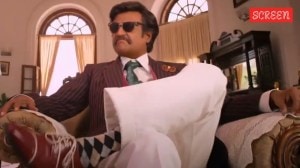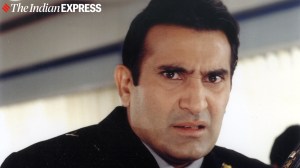Kidman drama Rabbit Hole a little self-conscious
The film does achieve moments of catharsis,but it can be heavy going.
The film does achieve moments of catharsis,but it can be heavy going.
John Cameron Mitchell takes a break from shepherding his sexually charged writing to the screen to direct David Lindsay-Abaires adaptation of his Pulitzer-winning play,Rabbit Hole,an intense,intimate story of a couple reeling from the loss of their young son. This extreme change of pace allows Mitchell to burrow deeply into a more grounded kind of drama than is his forte. Nicole Kidman and Aaron Eckhart deliver performances that are like raw wounds,where nothing either one can say or do will blot out relentless memories and pain.
Rabbit Hole will win its share of accolades,but will it win audiences? The small screen better accommodates this kind of concentrated tragedy; in a cinema,the story becomes like those support-group sessions the couple attends: The film does achieve moments of catharsis,but it can be heavy going.
The story begins eight months after a traffic accident kills Becca (Kidman) and Howies (Eckhart) boy. The more the couple plays normal, the more the effort fails. Becca tries to eradicate all signs of her son,while Howie reaches out to family and friends.
The group sessions barely help. Too much talk of God for Becca,and though he wont admit it,wallowing in grief isnt doing Howie any good,either. The story pulls in other characters Beccas mother (Dianne Wiest),who also lost a son,and a sister (Tammy Blanchard),whose pregnancy seems like a rebuke to Becca. Finally,Becca reaches out and to the most surprising person. She happens to see and then makes contact with the high school student (Miles Teller) whose car struck her son. The two discover they share a common grief over the accident. The youth is developing a comic book that deals with parallel universes,of other places where a sad person might be happy and a little boy might not lose his life. Meanwhile,Howie has his own secret sharer,a woman (Sandra Oh) from group,who has become something of a long-term griever. You realise this couple is gradually coming apart by creating separate lives.
Lindsay-Abaire knows his way around such grief,what things feel like and how best intentions go very wrong. His writing carefully pinpoints the moment where bottled-up rage will explode or the smallest incident can trigger a complete loss of control. However,Rabbit Hole traps its audience inside this prison of guilt and recrimination. The drama has its own relentlessness. Every scene is about the couples tragedy. Lines of dialogue inevitably have double meanings. Not even a dog gets walked without this being about the lost child. In this way,the writing is too self-aware. The film cries out for moments that are not about the couples search for re-engagement. Cant a man simply walk a dog? Kidman grabs the central focus of the story as the more distraught of the two. The performance is riveting because she essentially plays the entire film at two levels,the surface everyday life and then what is turning over and over again in her mind. Eckharts outgoing husband,who isnt afraid to admit to his pain,nicely balances the tightly wound wife. Hes open to whatever works but nothing does. So frustration compounds his anguish.
Wiests mother is one that never loses patience with her daughter because she of all people understands. Teller gives a steady,somber performance as a young man still in a state of shock,whose whole life has gone off-kilter in a single moment.
Mitchells crew does solid work in rendering an almost-too-perfect bedroom community outside New York. Then again,this is all part of the films self-awareness: No matter how safe and comfy your surroundings,the film insists,everything in an instant can disappear down a rabbit hole.






- 01
- 02
- 03
- 04
- 05

























